STATEHOUSE REPORT | ISSUE 20.40 | OCT. 1, 2021
BIG STORY: Hundreds to march Saturday for reproductive rights
NEWS BRIEFS: Mask mandate provided week of drama
LOWCOUNTRY, Ariail: Moo?
COMMENTARY, Brack: Happy birthday, Mr. President
SPOTLIGHT: S.C. Hospital Association
FEEDBACK: Lejeune poisoning caused injury, pain, suffering
MYSTERY PHOTO: Orange and blue
Hundreds to march Saturday for reproductive rights
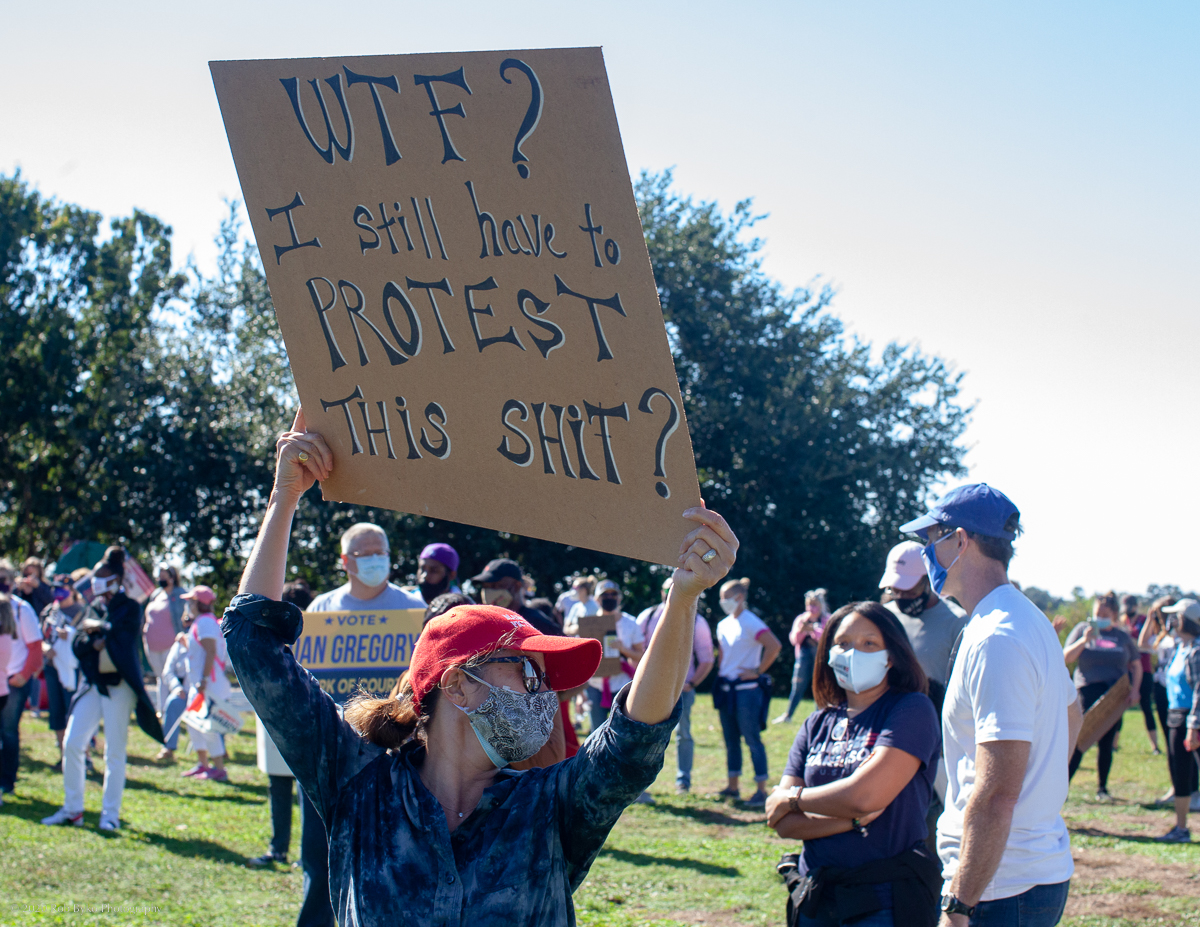
By Andy Brack, editor and publisher | Hundreds of South Carolinians are expected to march Saturday in Charleston, Columbia, Greenville and Myrtle Beach to send a strong message against a restrictive abortion measure, known as the “fetal heartbeat” law, that state legislators passed in February.
“The marches this weekend continue to highlight the still heinous attitudes toward women in South Carolina,” said Charleston women’s right’s advocate Jennet Robinson Alterman “Consider that women did not serve on juries until 1969. We have among the highest rates of infant and maternal mortality in the U.S.
“Women’s reproductive rights are practically nonexistent. Women are still paid significantly less than men to name just a few of the reasons we march and march and march.”

Saturday’s marches will coincide with scores of Women’s March events across the nation. Events in and around the Carolinas could attract thousands, organizers say.
“Supporters of reproductive health care are rallying to show our support for the right to legal abortion, said Molly Rivera, communications director for Planned Parenthood South Atlantic. “We also know that a right without access isn’t a right in practice.
“Decades of attacks on reproductive rights and health care by state legislators have already made abortion inaccessible for many people in South Carolina. And these same lawmakers have long made clear their intention to continue to pass as many laws as possible to stigmatize abortion and restrict access to care, if not block it entirely.”
In Charleston spurred on by restrictive anti-abortion legislation passed in Texas and South Carolina, more than 400 supporters are expected to meet at Charleston City Hall and walk to the U.S. Custom House just before midday Saturday.
“It’s a national call to action, after the law passed in Texas,” said Erica Cokley, an event organizer who also serves on Charleston County School Board. “We want to continue to send a unified message that we stand in solidarity … amplifying the voices of the marginalized and standing together for all women’s rights,” specifically standing with women of color, Cokley told the Charleston City Paper.
Other marches in and around the state:
- Columbia: March and Rally for Reproductive Rights and Justice, noon, Saturday,Martin Luther King Jr. Park, 2300 Greene Street, in Five Points.
- Greenville: The Mauldin/Greenville Women’s March, noon, Saturday, One City Plaza on Main Street.
- Myrtle Beach: Rally for Abortion Justice, 10 a.m., Saturday Chapin Park, 400 14th Ave North.
- Savannah: 11 a.m., Saturday, Forsyth Park Fountain, 2 West Gaston St.
- Augusta: 2 p.m., Saturday, The Augusta Commons, 836 Reynolds St.
- Charlotte: 11 a.m., Saturday, First Ward Park, 301 E. 7th St.
 “These events are multiracial, intergenerational and multilingual in recognition that a threat to abortion rights would impact all South Carolinians,” said Courtney Thomas, director of communications of the S.C. Women’s Rights and Empowerment Network in Columbia. “We invite all South Carolinians to participate because our leaders need to know that this issue is not niche, there are advocates who are willing to fight to retain their reproductive freedom.”
“These events are multiracial, intergenerational and multilingual in recognition that a threat to abortion rights would impact all South Carolinians,” said Courtney Thomas, director of communications of the S.C. Women’s Rights and Empowerment Network in Columbia. “We invite all South Carolinians to participate because our leaders need to know that this issue is not niche, there are advocates who are willing to fight to retain their reproductive freedom.”
South Carolina’s restrictive law
Under the S.C. Fetal Heartbeat and Protection from Abortion Act, doctors are forbidden to perform abortions if a fetal heartbeat is detected (with no exceptions in cases of rape, incest or medical necessity). Heartbeats are typically detected five to six weeks after conception — before most women even know they’re pregnant.
Though a federal court blocked the bill just a day after Gov. Henry McMaster signed it into law, pro-choice advocates fear if the issue makes it to a now-conservativeU.S. Supreme Court, it could jeopardize the precedent set by Roe v. Wade, the 1973 case that ruled women have the right to choose to have an abortion.
This fear was heightened after the Supreme Court refused to block a similar Texas bill signed into law in late May. The Texas bill takes abortion restrictions one step further by allowing citizens to sue individuals they suspect have provided an illegal abortion.
In an attempted response to pro-choice advocates’ dismay with the federal courts’ lack of interference, House Democrats approved the Women’s Health Protection Act last weeky. Though it’s considered unlikely the bill will make it through the Senate, Democrats have said they hope the measure will guarantee a woman’s right to an abortion and protect the Roe vs. Wade decision.
The Charleston City Paper’s Samantha Connors contributed to this story. Have a comment? Send to: feedback@charlestoncitypaper.com.
- Have a comment? Send to feedback@statehousereport.com
Mask mandate provided week of drama
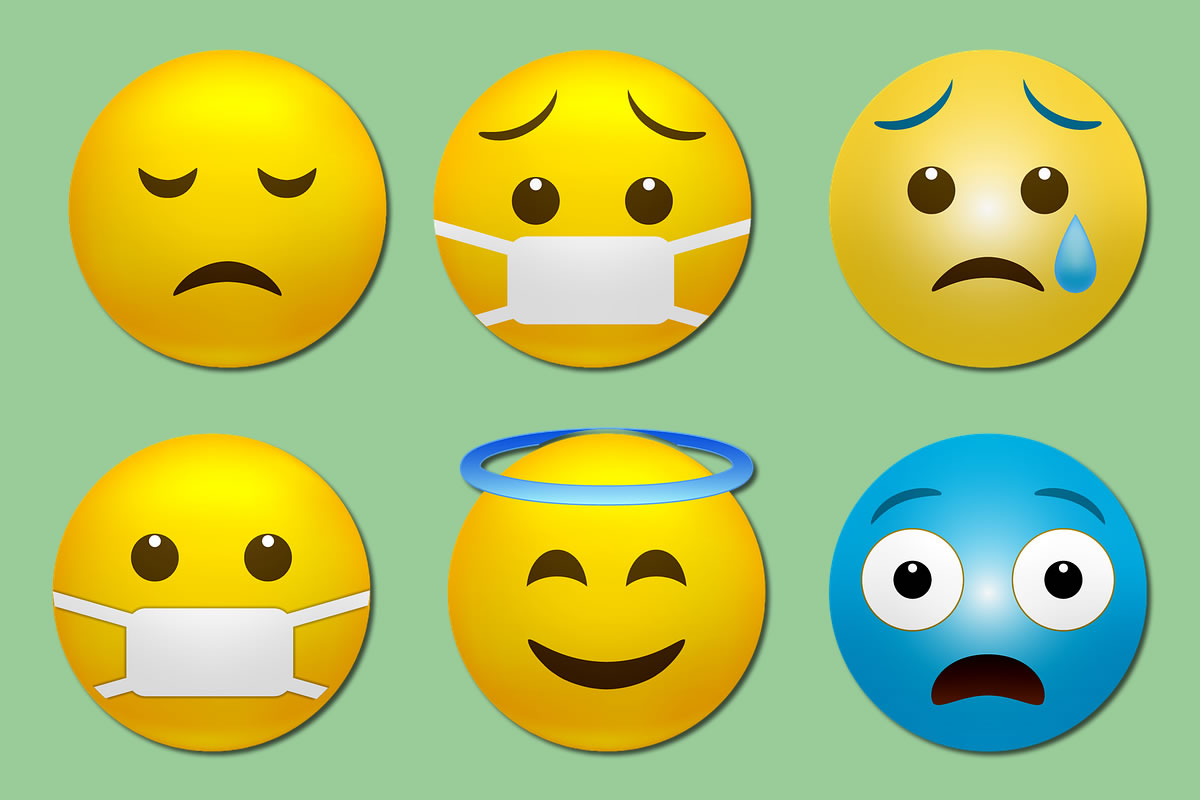
Staff reports | Trying to keep up with what’s going on with South Carolina and mask mandates has been like Americans watching cricket — hard and harder to figure out
Local governments, school boards and courts have flailed in recent weeks over a legislatively-mandated ban on any mandate that required people, particularly students, to wear masks to protect them from the COVID-19 virus. GOP leaders have backed the ban but said little while refusing to call the General Assembly back into session to respond to broad public outcries to overturn the ban, which was inserted into the state’s budget during the summer.
The drama picked up pace this week.
On Tuesday, a federal judge ruled the budget proviso was in violation of the national Americans with Disabilities Act since it effectively bars some students from participating in school by prohibiting school districts from enacting mask mandates. Meanwhile, Charleston City Council and Dorchester School District 2 decided to hold off on a decision on masks for the time being, citing lowering case numbers and improving vaccination rates. Additionally in response to a challenge to Charleston County School District’s mask mandate for students, staff and visitors, Ninth Circuit Court Judge Bentley Price denied a motion for an emergency temporary injunction and restraining order prohibiting the district from enforcing its new mask mandate.
On Wednesday emboldened by the federal court’s decision, Education Superintendent Molly Spearman released a memo saying districts had the authority to require masks on campuses and to consult with their lawyers to help protect the medically vulnerable. Gov. Henry McMaster and Attorney General Alan Wilson filed appeals as many school boards started revisiting mandates.
But things got upturned Thursday when the state Supreme Court voted again to uphold the legislative ban on mask mandates two days after the federal judge’s Tuesday ruling. The new ruling, however, allows districts to require masks without violating the state rule if they can find a way to avoid spending state money enforcing the wearing of face coverings. Stay tuned.
In other news:
![]() COVID update. South Carolina health officials Thursday reported 1,915 total cases of COVID-19, with 1,144 confirmed. A total of 114 new deaths, with 85 confirmed, were also reported Wednesday. With 14,824 tests reported, 18.8% were confirmed positive. More Charleston City Paper
COVID update. South Carolina health officials Thursday reported 1,915 total cases of COVID-19, with 1,144 confirmed. A total of 114 new deaths, with 85 confirmed, were also reported Wednesday. With 14,824 tests reported, 18.8% were confirmed positive. More Charleston City Paper
S.C. is 6th worst state for women killed by men. On the heels of nationwide attention over the disappearance of Gabby Petito and the body of a Florida student found dead in Florence County, South Carolina has received another dubious ranking. The state is ranked the sixth worst state in the rate of women killed by men, according to a new report. In 2019, the most recent year of available federal data, there were 57 women killed by men in South Carolina. Just over nine in 10 women killed are murdered by a man they know, the report said. More: The Post and Courier, WCIV, Violence Policy Center
Hate crime reports nearly double in S.C., according to FBI statistics. With reported hate crimes rising in South Carolina, the Federal Bureau of Investigation has launched a campaign to encourage residents to report crimes of discrimination. More: The State, WCSC TV
Aging roads in S.C. have nation’s highest fatality rate. A new report from The Road Information Program says that not only does South Carolina roads have the nation’s highest fatality rate but the aging roads cost drivers $2.1 billion per year. More: The Post and Courier
Charleston RiverDogs win 1st minor-league title in almost 100 years. The Charleston RiverDogs’ win over the North Carolina Down East Wood Ducks secured the team the Low-A East Championship Series Sunday. More: Charleston City Paper, WCSC TV, The Post and Courier, WCIV TV
McMaster planning to commit $300M toward I-73 in Horry County. McMaster is expected to be in Horry County Oct. 4 to announce a plan to put at least $300 million toward Interstate 73. More: The Myrtle Beach Sun News.
Butterfinger is S.C.’s favorite Halloween candy, retailer says. CandyStore.com says 14 years of sales data suggests that Butterfinger is the preferred Halloween candy of choice in the Palmetto state. More: Spartanburg Herald-Journal
Charleston RiverDogs win 1st minor-league title in almost 100 years. The Charleston RiverDogs’ win over the North Carolina Down East Wood Ducks secured the team the Low-A East Championship Series Sunday. More: Charleston City Paper, WCSC TV, The Post and Courier, WCIV TV
- Want more headlines every business day that are like this? Visit our friends at SC Clips.
Moo?
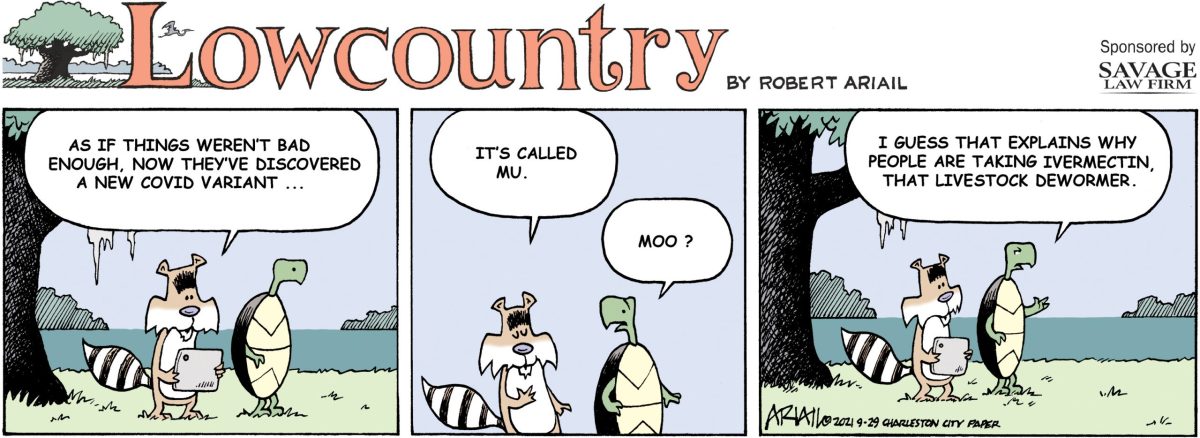
Cartoonist Robert Ariail always has an interesting take on what’s going on in South Carolina. His weekly “Lowcountry” strip is originally drawn for our sister publication, the Charleston City Paper. Love the cartoon? Hate it? What do you think: feedback@statehousereport.com.
Happy birthday, Mr. President
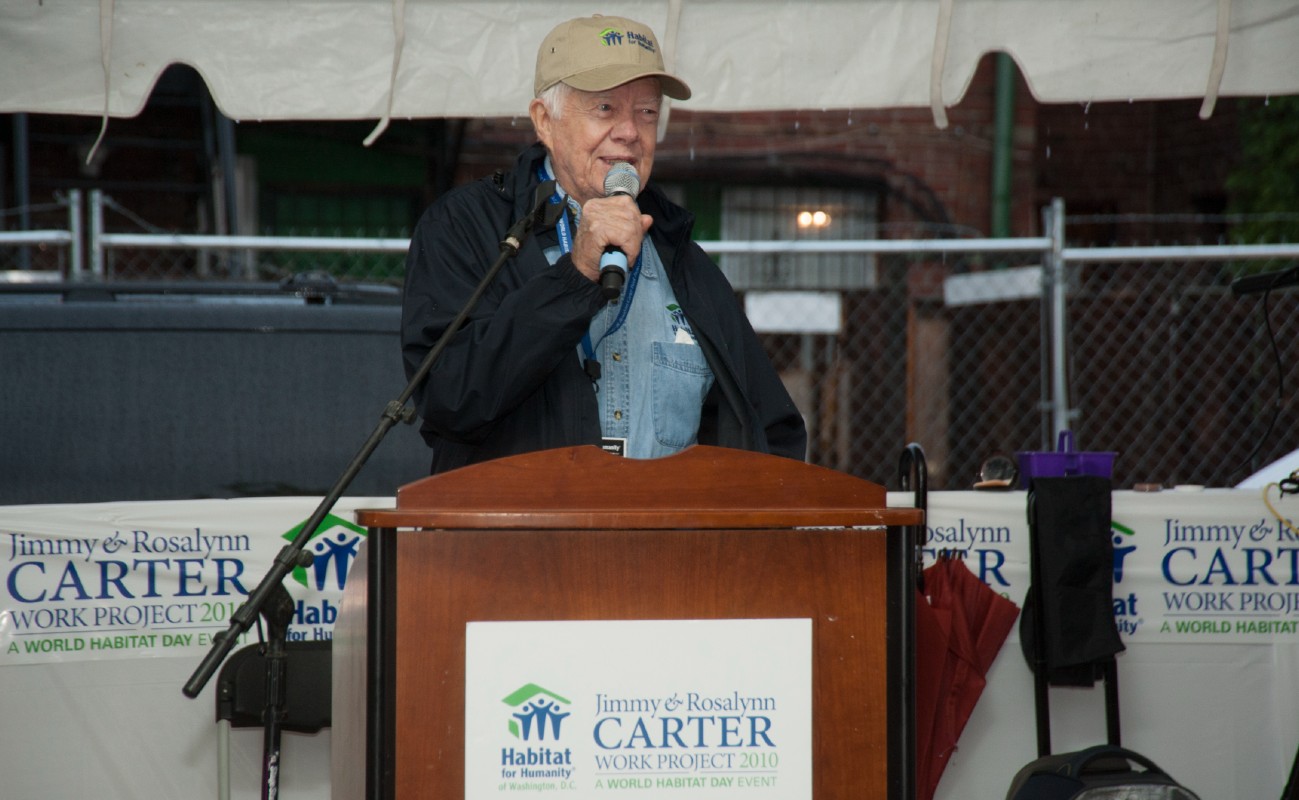
By Andy Brack, editor and publisher | Former President Jimmy Carter, now 97, was born when trains were a common form of transportation.
 There were no interstates, information superhighways, fax machines, computers, emails or texts. Social media and instant communication to the other side of the world were the things of science fiction. Cars broke down a lot. Phones were elementary and not ubiquitous. Times were hard. A Depression was around the corner.
There were no interstates, information superhighways, fax machines, computers, emails or texts. Social media and instant communication to the other side of the world were the things of science fiction. Cars broke down a lot. Phones were elementary and not ubiquitous. Times were hard. A Depression was around the corner.
In An Hour Before Daylight, Carter described struggles on farms across the South like the one where he grew up outside of Plains, Ga.:
“Despite the extreme rural poverty that prevailed at the time, Southern farm population increased by 1.3 million between 1930 and 1935, as desperate people lost their jobs in failing factories, left their urban homes, and eventually wound up in places like our community.”
In this environment, Carter grew to form a value system based on family, community and church. Then, as now, he believes in things that may seem old-fashioned in today’s interconnected world — faith, honor, doing the right thing, helping others and moving forward for the betterment of all.
Carter, governor of Georgia from 1971 to 1975, swept into the presidency in 1977 after the international embarrassment of the Watergate scandal when Americans were looking for a decent man to be president. A Democrat, he carried the South and much of the Northeast, but failed to win states west of Missouri, other than Texas and Hawaii.
But Carter’s presidency didn’t set Washington on fire as he often didn’t play by its rules. By today’s standards, that would make him popular, but those were different times. Carter was an outsider when Republicans and Democrats cozied up to one another and lobbyists and played an inside game even more out of the sunlight than today. It didn’t help that the country struggled to get out of an economic malaise and an energy crisis.
Yet Carter had successes. He pushed energy conservation during a time of profligate energy waste and when no one had heard of climate change. He promoted airline deregulation. He created the federal departments of education and energy as cabinet-level agencies. He boosted funding for Head Start and other safety net programs. In the arena of foreign policy, he was widely credited as getting leaders of Egypt and Israel to move toward Middle East peace through the Camp David accords.
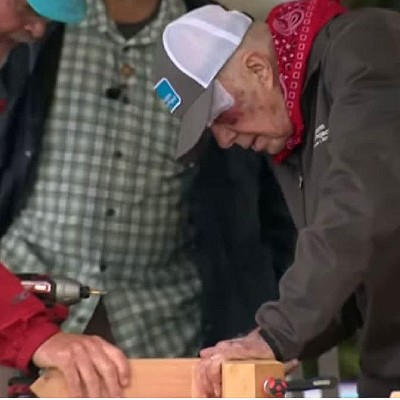
After losing the 1980 election to Republican Ronald Reagan, Carter didn’t sit idly by drinking tea in the breeze. He embarked on a post-presidential career that set the gold standard for public service. Not only has he written more than 30 books — he had to make a living somehow — but he established the Carter Center in Atlanta, which promotes peace and human rights and monitors international elections. One of its most astounding successes has been leadership in a campaign to eradicate water-borne Guinea worm disease which once affected millions. In 2020, only 27 cases were documented worldwide, according to the World Health Organization.
During his life after the presidency, Carter has often been on construction sites helping to build houses for Habitat for Humanity. Internet memes crop up periodically that show Carter hard at work on a house just days after a fall that left him with a black eye. He even showed up for work while recovering from cancer. That’s toughness. That’s resilience. That’s commitment.
As the nation’s president who has lived longest — and who has had the longest post-presidential career — Jimmy Carter continues to inspire. He’s a quiet force whose strength, faith and goodwill are a testament to what’s still right in America. Learn from him.
Happy birthday, Mr. President!
Carter on his 27th annual Carter Work Project on World Habitat Day, Oct. 2, 2010. National Archives photo.
- Have a comment? Send to: feedback@statehousereport.com.
S.C. Hospital Association
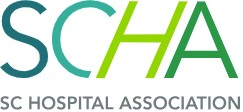 The public spiritedness of our underwriters allows us to bring Statehouse Report to you at no cost. This week’s spotlighted underwriter is the South Carolina Hospital Association, the Palmetto State’s foremost advocate on healthcare issues affecting South Carolinians. The mission of SCHA is to support its members in addressing the healthcare needs of South Carolina through advocacy, education, networking and regulatory assistance.
The public spiritedness of our underwriters allows us to bring Statehouse Report to you at no cost. This week’s spotlighted underwriter is the South Carolina Hospital Association, the Palmetto State’s foremost advocate on healthcare issues affecting South Carolinians. The mission of SCHA is to support its members in addressing the healthcare needs of South Carolina through advocacy, education, networking and regulatory assistance.
Founded in 1921, the South Carolina Hospital Association is the leadership organization and principal advocate for the state’s hospitals and health care systems. Based in Columbia, SCHA works with its members to improve access, quality and cost-effectiveness of health care for all South Carolinians. The state’s hospitals and health care systems employ more than 70,000 persons statewide. SCHA’s credo: We are stronger together than apart.
- To learn more about SCHA and its mission, go to: http://www.scha.org.
Lejeune poisoning caused injury, pain, suffering
To the editor:
![]() Re: Camp Lejeune Justice Act: [There was] extensive damage that was strewn through my life with no help from those in power, from in utero poisoning in 1968 to 1969 through damage to my law career in 2021. That pain and suffering will not stop until SOMEONE decides to say yes when people like me make demands.
Re: Camp Lejeune Justice Act: [There was] extensive damage that was strewn through my life with no help from those in power, from in utero poisoning in 1968 to 1969 through damage to my law career in 2021. That pain and suffering will not stop until SOMEONE decides to say yes when people like me make demands.
YES to health care. YES to compensation for my mother’s death, my disabilities, and my daughter’s scoliosis, with all consequences paid. YES to an apology. YES to my protection as a lawyer when I lost my mother to her Camp Lejeune cancer 308 days before I graduated.
How much injury and pain must people like me suffer while Congress has money for everything else under the sun?
— Andrew U.D. Straw, Washington, D.C.
Send us your thoughts
We receive a few comments a week and look forward to publishing. But often we can’t because we can’t verify the identity of the writer. To be published, you’ve got to provide us with contact information so we can verify your letters. Verified letters to the editor are published weekly. We reserve the right to edit for length and clarity. Comments are limited to 250 words or less. Please include your name and contact information.
- Send your letters or comments to: feedback@statehousereport.com
Orange and blue
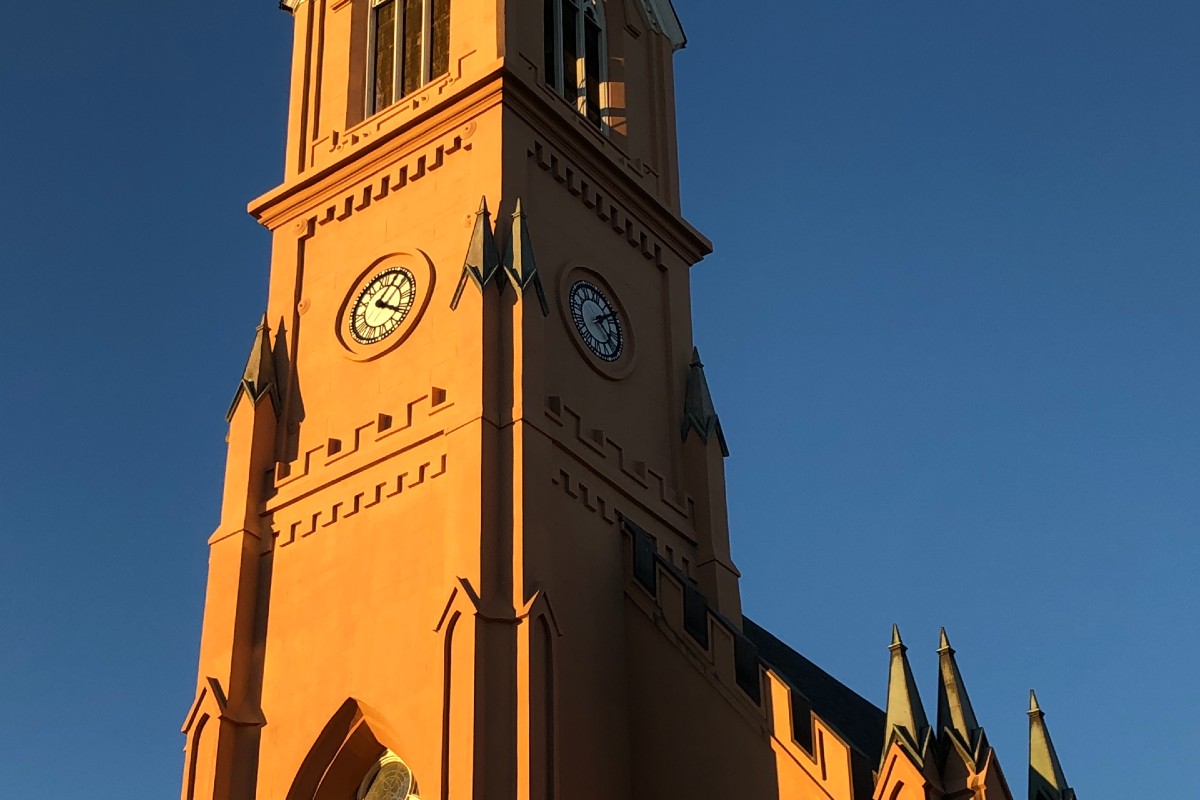
The contrast of the orange and blue make a stunning photo, but where is it? Send your guess to feedback@statehousereport.com — and remember to include your name, home city and contact information.
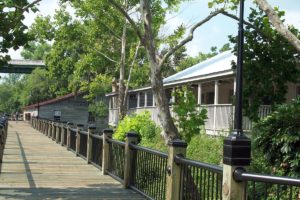 Last week’s mystery, “Take a stroll,” showed part of the Waccamaw River Walkway in Conway.
Last week’s mystery, “Take a stroll,” showed part of the Waccamaw River Walkway in Conway.
Congratulations to these readers who identified the photo: Elizabeth Jones of Columbia; George Graf of Palmyra, Va.; Mark Partin of Sumter; Allan Peel of San Antonio, Texas; Jacie Godfrey of Florence; Deborah Adams of Chesterfield; Will Williams of Aiken; David Taylor of Darlington; and Don Clark of Hartsville.
Send us a mystery. If you have a photo that you believe will stump readers, send it along (but make sure to tell us what it is because it may stump us too!) Send to: feedback@statehousereport.com and mark it as a photo submission. Thanks.
ORDER NOW: Copies are in Lowcountry-area bookstores now, but if you can’t swing by, you can order a copy online today.
ABOUT STATEHOUSE REPORT
Statehouse Report, founded in 2001 as a weekly legislative forecast that informs readers about what is going to happen in South Carolina politics and policy, is provided to you at no charge every Friday.
- Editor and publisher: Andy Brack, 843.670.3996
Donate today
We’re proud to offer Statehouse Report for free. For more than a dozen years, we’ve been the go-to place for insightful independent policy and political news and views in the Palmetto State. And we love it as much as you do.
But now, we can use your help. If you’ve been thinking of contributing to Statehouse Report over the years, now would be a great time to contribute as we deal with the crisis. In advance, thank you.
Buy the book
Now you can get a copy of editor and publisher Andy Brack’s We Can Do Better, South Carolina! ($14.99) as a paperback or as a Kindle book ($7.99). . The book of essays offers incisive commentaries by editor and publisher Andy Brack on the American South, the common good, vexing problems for the Palmetto State and interesting South Carolina leaders.
More
- Mailing address: Send inquiries by mail to: P.O. Box 21942, Charleston, SC 29413
- Subscriptions are free: Click to subscribe.
- We hope you’ll keep receiving the great news and information from Statehouse Report, but if you need to unsubscribe, go to the bottom of the weekly email issue and follow the instructions.
- Read our sister publications: Charleston City Paper (every Wednesday) | Charleston Currents (every Monday).
- © 2021, Statehouse Report, a publication of City Paper Publishing, LLC. All rights reserved.



